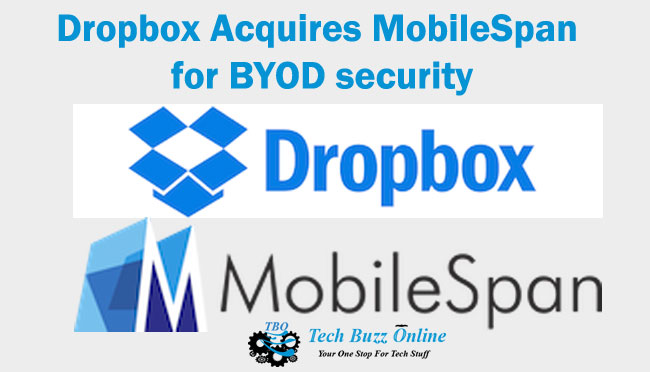
Dropbox has acquired MobileSpan, a startup that helps enterprise employees to securely access information that is behind corporate firewalls. As a result of the acquisition, MobileSpan will be shutdown by the end of 2014 and the team MobileSpan will join Dropbox.
This acquisition will push Dropbox forward from being just a file sharing and storage service to more enterprise friendly.
It is no surprise that people working in IT companies want to bring in their own devices like mobile phones or tablets to work and use them. And the companies are concerned about the security of their files and data; hence they usually block out company’s precious data behind a firewall and make them inaccessible and unusable from employee’s own mobile devices.
MobileSpan helps overcome this issue by making it possible for the employees to securely access work related data that is behind the company’s firewall by running software on the employees’ devices. Now, company data becomes usable at the employees’ hands from anywhere, in a completely secure manner.
Dropbox has had a good growth of company clients in recent times and this acquisition will boost the reach of Dropbox for Business. Before acquiring MobileSpan, Dropbox has recently acquired, Hackpad, a collaborative document editing company, Zulip, a workplace messaging service and DropTalk, another messaging service intended for business – all in the direction to improve Dropbox for Business.
In a blog post that announces the acquisition, MobileSpan team writes:
We believe that we have come a long way: MobileSpan Gateway and the MobileSpan apps for iOS and Windows allow secure ad-hoc access to business content and editing of Office documents living behind the corporate firewall with native UX on each platform. Yet we still have some ways to go before business content is freed from its desktop-focused roots and is made readily usable yet secure on modern mobile devices.
Joining forces with Dropbox will allow us to rapidly accelerate the realization of that dream.
BYOD plus security will certainly gain traction among corporate companies and its employees.
